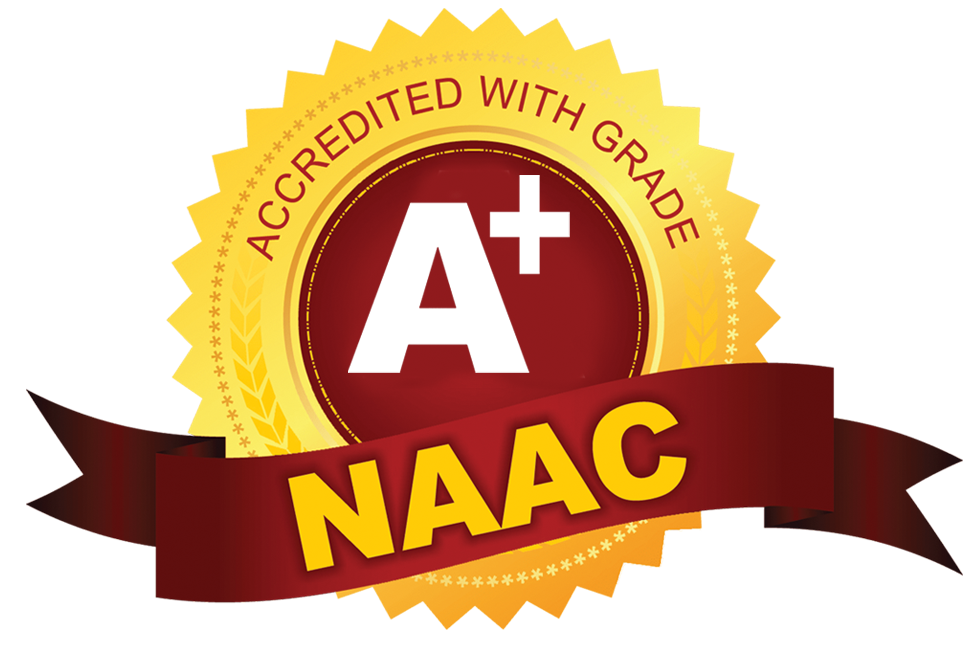The Department is functioning in this college since its inception. There is consistent development in all spheres including infrastructure, staff and student strength, well-equipped laboratories and smart classrooms. All the faculty members ensure a standard of education to the students. The benchmark features have helped our department to acquire National Board of Accreditation since 2009 onwards (Tier-I Washington Accord from 2016). The department has IEEE, IETE and ISTE chapters. The department also possesses a Center of Excellence on Robotics and Internet of Things (IoT) Lab in association with Texas Instruments, Bangalore.
Offering undergraduate and postgraduate programmes by providing effective and balanced curriculum and equip themselves to gear up to the ethical challenges awaiting them.
Providing the technical, research and intellectual resources that will enable the students to have a successful career in the field of Electronics and Communication Engineering.
Providing need based training and professional skills to satisfy the needs of society and industry.

werwewrwe

The vision of the Electronics and Communication Engineering Department is to produce graduates with sound knowledge for the betterment of society and to meet the dynamic demands of industry and research.

PEO1: Gain the required knowledge with basics in the field of Electronics and Communication Engineering to lead a professional career.
PEO2:Assess and deal with the problems with social values relevant to the field of Electronics and Communication Engineering.
PEO3:Engage in life-long learning by participating in professional activities and carrying out projects/research.
PEO4:Acquire relevant skills and to lead a team with ethics for success.
PO1: Engineering Knowledge: Apply knowledge of mathematics, natural science, computing, engineering fundamentals and an engineering specialization to develop to the solution of complex engineering problems.
PO2: Problem Analysis: Identify, formulate, review research literature and analyze complex engineering problems reaching substantiated conclusions with consideration for sustainable development.
PO3: Design / Development of Solutions: Design creative solutions for complex engineering problems and design/develop systems/components/processes to meet identified needs with consideration for the public health and safety, whole-life cost, net zero carbon, culture, society and environment as required.
PO4: Conduct Investigations of Complex Problems: Conduct investigations of complex engineering problems using research-based knowledge including design of experiments, modelling, analysis & interpretation of data to provide valid conclusions.
PO5: Engineering Tool Usage: Create, select and apply appropriate techniques, resources and modern engineering & IT tools, including prediction and modelling recognizing their limitations to solve complex engineering problems.
PO6: The Engineer and the World: Analyze and evaluate societal and environmental aspects while solving complex engineering problems for its impact on sustainability with reference to economy, health, safety, legal framework, culture and environment.
PO7: Ethics: Apply ethical principles and commit to professional ethics, human values, diversity and inclusion; adhere to national & international laws.
PO8: Individual and Collaborative Team Work: Function effectively as an individual, and as a member or leader in diverse/multi-disciplinary teams.
PO9: Communication: Communicate effectively and inclusively within the engineering community and society at large, such as being able to comprehend and write effective reports and design documentation, make effective presentations considering cultural, language, and learning differences
PO10: Project Management and Finance: Apply knowledge and understanding of engineering management principles and economic decision-making and apply these to one’s own work, as a member and leader in a team, and to manage projects and in multidisciplinary environments.
PO11: Life-long Learning: Recognize the need for, and have the preparation and ability for i) independent and life-long learning ii) adaptability to new and emerging technologies and iii) critical thinking in the broadest context of technological change.
PSO1: Design and analyze diverse problems in the field of telecommunication with standards.
PSO2:Design and analyze the basics to advanced analog and digital electronics.
PSO3:Apply signal and image processing techniques to study and analyze the systems for applications.
04562-239600
valarmathi@psr.edu.in
Head Dept. of Electrical and Electronics Engineering, P.S.R. Engineering College, Sevalpatti, Sivakasi – 626 140, Virudhunagar District, Tamil Nadu, India. muniraj@psr.edu.in
Head Dept. of Computer Science and Engineering, PSR Engineering College, Sevalpatti, Sivakasi – 626 140, Virudhunagar District, Tamil Nadu, India. ramathilagam@psr.edu.in
Head Dept. of Electronics and Communication Engineering, PSR Engineering College, Sevalpatti, Sivakasi – 626 140, Virudhunagar District, Tamil Nadu, India. valarmathi@psr.edu.in
Curabitur ac tortor ante. Sed quis iaculis risus. Ut ultrices ligula aliquet odio tristique euismod. Donec efficitur dolor in turpis aliquet, at mollis.
Curabitur ac tortor ante. Sed quis iaculis risus. Ut ultrices ligula aliquet odio tristique euismod. Donec efficitur dolor in turpis aliquet, at mollis.
Curabitur ac tortor ante. Sed quis iaculis risus. Ut ultrices ligula aliquet odio tristique euismod. Donec efficitur dolor in turpis aliquet, at mollis.
Curabitur ac tortor ante. Sed quis iaculis risus. Ut ultrices ligula aliquet odio tristique euismod. Donec efficitur dolor in turpis aliquet, at mollis.
Curabitur ac tortor ante. Sed quis iaculis risus. Ut ultrices ligula aliquet odio tristique euismod. Donec efficitur dolor in turpis aliquet, at mollis.
